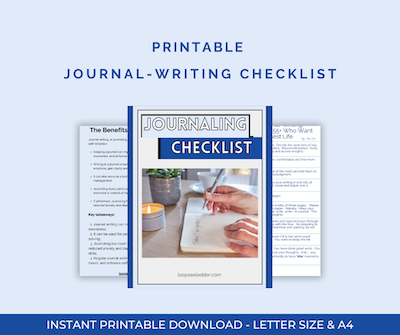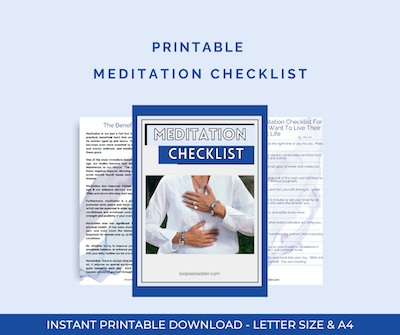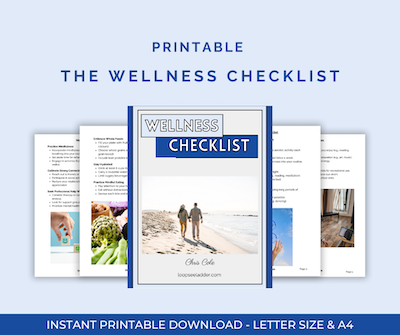Menopause Health Tips for Women 55+: Nutrition & Wellness
Navigating menopausal and post-menopausal health can be challenging, but it’s also an opportunity to embrace a new chapter of well-being.
By learning about menopause health and focusing on nutrition, hormone health, sleep hygiene, and mental wellness, women 55 and older can enhance their vitality and live with intention and joy.
Summary: This blog speaks directly to women aged 55 + about navigating menopause and post-menopausal health with intention and clarity. It emphasizes that this chapter can be a transition toward vitality rather than just a challenge. The article covers key areas: nutrition (e.g., calcium, vitamin D, phytoestrogens) for hormone and bone health; hormone health check-ups and maintaining a healthy weight; good sleep hygiene; and mental wellness through mindfulness, connection, and brain-healthy activities. The underlying message: with the proper habits and mindset, you can embrace this stage of life with strength, purpose and joy.
A Preamble - Menopause Health
Navigating menopausal and post-menopausal health can be challenging, but it’s also an opportunity to embrace a new chapter of well-being. By focusing on nutrition, hormone health, sleep hygiene, and mental wellness, women 55+ can enhance their vitality and live with intention and joy. Here are actionable strategies to help you thrive during and after menopause. Be especially focused on menopause health for an easier transition.
Navigating menopausal and post-menopausal health can be challenging.
By focusing on nutrition, hormone health, sleep hygiene, and mental wellness, women 55+ can enhance their vitality and live with intention and joy.
Nutrition for Hormone Balance and Energy
Proper nutrition is vital in managing menopausal symptoms and boosting overall health.
1. Prioritize Calcium and Vitamin D
As estrogen levels drop, bone density becomes a concern. Incorporate calcium-rich foods like dairy products, leafy greens, and fortified plant-based milks. Pair these with vitamin D sources such as fatty fish, eggs, or a high-quality supplement to improve calcium absorption.
Benefit: Reduces the risk of osteoporosis and strengthens bones.
2. Embrace Phytoestrogens
Phytoestrogens, found in soy products, flaxseeds, and chickpeas, mimic estrogen and may help alleviate hot flashes and mood swings.
Benefit: Balances hormone levels naturally and supports emotional stability.
3. Stay Hydrated and Limit Caffeine
Hormonal changes can cause dehydration and disrupt sleep. Drink plenty of water and reduce caffeine intake, especially in the afternoon.
Benefit: Enhances hydration, improves sleep quality, and reduces anxiety.
Hormone Health for Menopause Management
Understanding your body’s hormonal changes can help you navigate menopause more easily.
1. Regular Health Screenings
Schedule regular check-ups with your healthcare provider to monitor hormone levels and address concerns. Discuss options like bioidentical hormone replacement therapy (HRT) if needed.
Benefit: Provides personalized care and early detection of potential issues.
2. Maintain a Balanced Weight
Weight gain is typical during menopause due to a slower metabolism. Regular exercise and a nutrient-dense diet help regulate hormones and maintain a healthy weight.
Benefit: Improves energy levels and reduces the risk of chronic diseases.
Sleep Hygiene for Restful Nights
Menopause often disrupts sleep patterns. Implement these strategies for better rest:
1. Create a Sleep-Conducive Environment
Keep your bedroom calm, dark, and quiet. Invest in breathable bedding and consider a white noise machine if needed.
Benefit: Promotes uninterrupted sleep and helps manage night sweats.
2. Establish a Relaxing Bedtime Routine
Incorporate calming activities like reading, warm baths, or gentle yoga before bed.
Benefit: Prepares your body and mind for restful sleep.
3. Limit Screen Time
Avoid screens at least an hour before bedtime, as blue light can interfere with melatonin production.
Benefit: Enhances natural sleep rhythms and improves overall sleep quality.
Mental Well-Being for Emotional Balance
Menopause is a time of significant change, which can impact mental health. Prioritize self-care and emotional well-being with these tips:
1. Practice Mindfulness and Meditation
Mindfulness practices help reduce stress and promote emotional balance. Apps like Calm or Headspace offer guided sessions tailored to beginners.
Benefit: Lowers anxiety and fosters a sense of control.
2. Seek Social Connections
Join support groups, take up a hobby, or engage in activities that connect you with like-minded women. Sharing experiences can reduce feelings of isolation.
Benefit: Builds community and strengthens emotional resilience.
3. Engage in Cognitive Activities
Stimulate your mind by learning new skills, solving puzzles, or taking classes. Mental challenges keep your brain sharp and improve your mood.
Benefit: Supports cognitive health and boosts self-esteem.
Menopause is a time of significant change
Prioritize self-care and emotional well-being with these tips:
Embrace the Journey with Confidence
Managing menopausal and post-menopausal health involves making intentional choices to support your evolving needs. By focusing on nutrition, hormone health, sleep, and mental well-being, you can confidently enhance your quality of life and embrace this stage.
Action Steps to Start Today:
Add a calcium-rich food to your next meal.
Set a bedtime alarm to establish a consistent sleep schedule.
Take 10 minutes to practice mindfulness or deep breathing.
Every small step contributes to a healthier, more vibrant you. Begin your journey today and thrive beyond menopause.
Managing menopausal and post-menopausal health involves making intentional choices to support your evolving needs.
By focusing on nutrition, hormone health, sleep, and mental well-being, you can confidently enhance your quality of life and embrace this stage.
Resources to Support You:
FAQ
Q: Who is this article for?
A: Women 55 + who are either navigating menopause or the years after and want practical, lifestyle-based tools to support their health and wellbeing.
Q: What are the main focus areas of the article?
A: Nutrition (including bone health and phytoestrogens), hormone-health monitoring and weight control, restful sleep and good sleep hygiene, and maintaining mental/emotional well-being through mindful habits.
Q: Do I need radical diet or lifestyle changes?
A: No. The article recommends manageable adjustments—such as adding calcium-rich foods, checking vitamin D levels, establishing a consistent bedtime routine, and choosing one mindfulness or connection habit—rather than major overhauls.
Q: How will following these tips benefit me now?
A: You’ll be better equipped to manage changes in your body and energy, support bone and hormone health, sleep more soundly, and feel more centred, resilient and intentional in this next chapter.
Q: Is this a substitute for medical or specialist advice?
A: No. These are wellness and mindset suggestions. For significant menopausal symptoms, hormone-therapy decisions or underlying health concerns, you should consult your healthcare professional.
👉 I thoughtfully use AI tools to polish my writing, but every story comes from my lived experience.




































